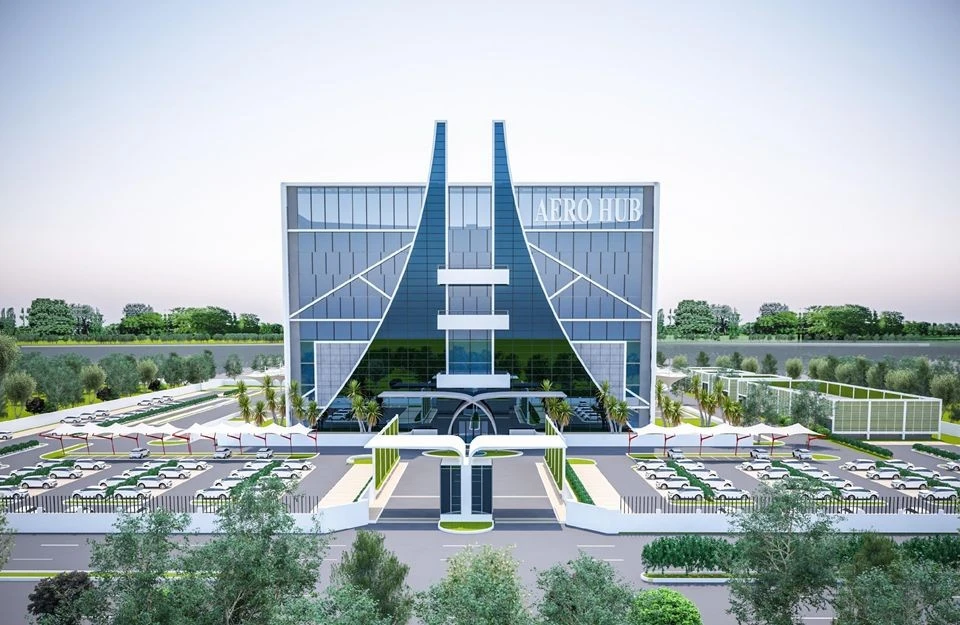Industrial corridors in Tamil Nadu have been a major driver of economic growth and infrastructural development, leading to a significant boost in land values. This development is part of a broader strategy to strengthen the industrial sector, enhance logistics, and improve connectivity in the state. Let's break down how industrial corridors are boosting land values in Tamil Nadu and the various factors that are contributing to this trend.
What are Industrial Corridors?
Industrial corridors are designated areas or routes that are developed with a focus on improving the manufacturing, logistics, and distribution sectors. These corridors typically connect key industrial hubs, ports, and transportation networks, making it easier for goods and services to move efficiently across regions. The idea is to create concentrated zones of industrial activity that can attract investments, create jobs, and foster economic growth.
Key Industrial Corridors in Tamil Nadu
Tamil Nadu has several prominent industrial corridors that are contributing to the growth of the state's economy and increasing land values:
-
Chennai-Bengaluru Industrial Corridor (CBIC)
- Purpose: The Chennai-Bengaluru corridor is designed to link two of the most important cities in southern India—Chennai (Tamil Nadu) and Bengaluru (Karnataka). The corridor facilitates manufacturing, IT, and logistics sectors, given the proximity of both cities to major ports and airports.
- Impact on Land Value: This corridor has created a favorable environment for industrial clusters, especially in cities like Kancheepuram, Vellore, and Krishnagiri. The demand for land in these areas has risen substantially due to improved connectivity, infrastructure, and access to major markets.
-
Chennai-Kolkata Industrial Corridor (CKIC)
- Purpose: Connecting Chennai to Kolkata, this corridor primarily focuses on enhancing connectivity between two vital eastern and southern ports, boosting trade and manufacturing.
- Impact on Land Value: The development of the CKIC corridor is expected to drive industrial growth in areas like Trichy, Villupuram, and Cuddalore. Improved transportation infrastructure, including roads, railways, and ports, has made land in these regions highly attractive for industrialists and real estate developers.
-
Mumbai–Chennai Industrial Corridor
- Purpose: This corridor aims to connect the western industrial powerhouse of Mumbai with the southern commercial hub of Chennai, improving logistics, industrial development, and manufacturing.
- Impact on Land Value: Areas along this corridor, particularly near the major hubs of Coimbatore, Erode, and Salem, have experienced rapid industrial growth, pushing land values higher as more businesses set up operations.
-
Coimbatore-Kochi Industrial Corridor
- Purpose: This corridor seeks to enhance the economic integration between Coimbatore in Tamil Nadu and Kochi in Kerala. Focused on textile manufacturing, engineering, and food processing, this corridor is poised to make the region an industrial powerhouse.
- Impact on Land Value: Land in Coimbatore, a major industrial hub in Tamil Nadu, has seen a surge in value due to increased investment and infrastructure development. The area is becoming more attractive for new industrial ventures, residential projects, and commercial investments.
Also Read: What Is Escrow in Real Estate Complete Explanation for Buyers and Sellers
Factors Contributing to the Increase in Land Value
Several key factors have contributed to the rise in land value in Tamil Nadu’s industrial corridors:
1. Improved Infrastructure and Connectivity
- Highways and Expressways: With the development of dedicated industrial corridors, the state government has improved road infrastructure. Projects like the Chennai–Bengaluru Expressway have made it easier for goods and services to move between key industrial cities. This has drastically reduced transportation costs and time, making land along these routes more valuable.
- Rail Connectivity: Railways are an important part of Tamil Nadu’s industrial corridors. Dedicated freight corridors are being built, which will increase the ease and speed of transporting goods, thereby increasing land demand.
- Ports and Airports: Proximity to ports like Chennai Port, Tuticorin, and Cochin Port, as well as airports, further enhances land value by improving connectivity to global markets. Industrial land near ports is highly sought after for manufacturing, warehousing, and logistics activities.
2. Government Policies and Incentives
- Investment Promotions: The Tamil Nadu government offers several incentives and subsidies to industries setting up in designated corridors. These include tax breaks, land acquisition facilitation, and ease of doing business initiatives. The government's focus on "Ease of Doing Business" has attracted both domestic and international investors, thus driving up land demand and its value.
- Industrial Parks: The establishment of industrial parks and Special Economic Zones (SEZs) within the corridors has further boosted land prices. The creation of these zones has led to high-quality infrastructure, including reliable utilities (electricity, water, etc.), better road networks, and workforce availability.
3. Growth in Industrial Activity
- Manufacturing Hub: Tamil Nadu has long been a manufacturing powerhouse in India, with industries such as automotive, textiles, and engineering being key contributors to the state's economy. With the development of industrial corridors, these sectors are seeing further expansion. The increase in the number of factories and manufacturing units along these corridors creates demand for land for industrial use and housing for workers, thereby raising land prices.
- New Industrial Sectors: Apart from traditional industries, the corridors also attract new sectors such as electronics, pharmaceuticals, and renewable energy. The diversification of industries increases the demand for both industrial and residential land, leading to appreciation in property prices.
4. Urbanization and Housing Demand
- Industrial Growth Leads to Urbanization: As more industries set up operations along these corridors, there is a corresponding rise in urbanization. This creates a need for housing, commercial properties, and civic infrastructure. This urban expansion inevitably pushes up land prices.
- Real Estate Development: With the increase in industrial activity, there is greater demand for real estate development, including residential units for the workforce, commercial spaces for businesses, and logistics hubs. Developers are increasingly eyeing these areas for their potential to deliver high returns on investment.
5. Increase in Global and Domestic Investment
- Foreign Direct Investment (FDI): Tamil Nadu is one of the top recipients of FDI in India, particularly in the automotive, electronics, and manufacturing sectors. This increase in foreign investment has led to greater demand for industrial land, further pushing up prices.
- Private Sector Investment: Along with FDI, domestic private sector investment has also surged, particularly in sectors like textiles, chemicals, and food processing. Investors look for areas with good infrastructure and accessibility, making land within industrial corridors highly desirable.
Also Read: Real Estate Growth Around Chennai Outer Ring Road An Overview
Long-Term Economic Impact
The industrial corridors in Tamil Nadu are poised to have a long-lasting impact on land values and the economy in general. Over time, these corridors will lead to:
- Greater Job Creation: The establishment of industries along the corridors will lead to direct and indirect job creation in manufacturing, logistics, services, and construction, leading to population growth in these regions and more demand for housing and commercial real estate.
- Economic Diversification: By attracting industries beyond traditional sectors, the corridors will help diversify the state’s economic base. This will reduce dependency on any single sector, leading to more stable and sustained growth.
- Higher Land Appreciation: With continued infrastructure development and industrial growth, land within these corridors will continue to appreciate, making it an attractive investment option for real estate developers and businesses.
Challenges and Considerations
While industrial corridors are a key driver of land value appreciation, there are challenges that need to be addressed:
- Land Acquisition Issues: The development of industrial corridors requires large-scale land acquisitions. This can sometimes lead to disputes with local communities and farmers, which can slow down development.
- Environmental Concerns: Large-scale industrial development can lead to environmental concerns such as pollution and loss of agricultural land. Sustainable development practices will be key in balancing industrial growth with environmental conservation.
- Infrastructure Maintenance: Ensuring that the infrastructure keeps pace with rapid industrial growth is a constant challenge. The government must continue to invest in roadways, railways, utilities, and social infrastructure to support growing industries and populations.
Conclusion
The industrial corridors in Tamil Nadu have proven to be significant drivers of land value growth. The combination of enhanced infrastructure, industrial development, favorable government policies, and increasing investment has created a fertile ground for appreciating land prices in the state. As Tamil Nadu continues to develop its industrial corridors, land values will likely continue to rise, making it an attractive region for both industrial investors and real estate developers. However, addressing challenges such as land acquisition and environmental concerns will be crucial to ensuring sustainable growth in the long run.
https://www.livehomes.in/blogs













